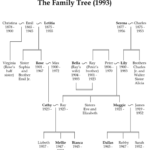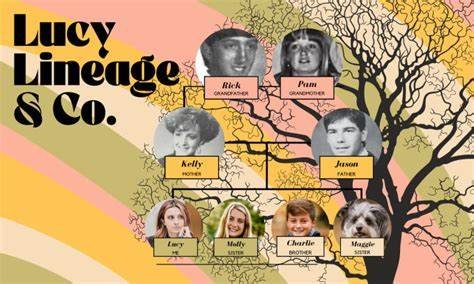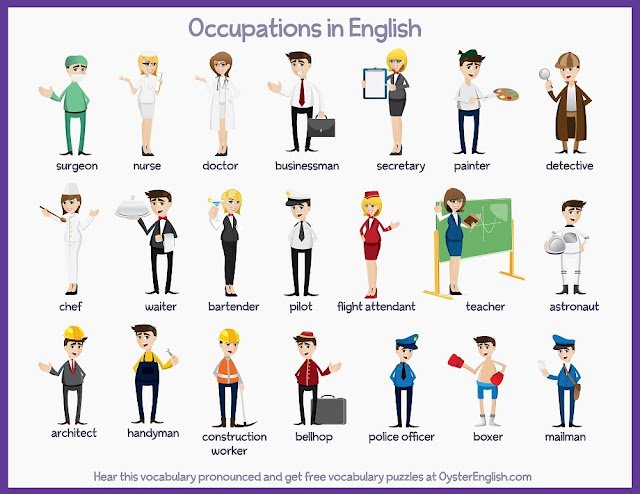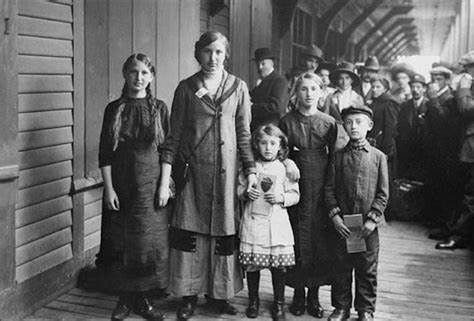Tracing family names can be an exciting journey that helps you uncover the history and origins of your ancestors. Whether you’re researching your family tree or learning about your surname’s roots, there are several resources available to help you along the way. In this article, we’ll explore some of the best resources for tracing family names worldwide, providing you with the tools to dive into your genealogy.

1. Genealogy Websites and Databases
One of the best ways to trace family names is through online genealogy websites. These platforms offer vast collections of records that can help you uncover your ancestors’ names, occupations, birthplaces, and more. Here are some of the most popular resources:
- Ancestry.com: One of the largest genealogy websites, Ancestry.com offers access to billions of records, including census data, birth certificates, marriage licenses, and military records. It also provides DNA testing services to help trace your genetic heritage. With powerful search tools and access to family trees, this site is a must for anyone looking to explore family names worldwide.
- FamilySearch.org: This free resource, provided by The Church of Jesus Christ of Latter-day Saints, offers billions of genealogical records. FamilySearch is particularly useful for accessing historical documents, church records, and family trees submitted by users across the world.
- MyHeritage: Another great website, MyHeritage provides access to millions of historical records, along with DNA testing. It also allows you to build a family tree and explore connections to other users worldwide.
These websites allow you to search for family names and explore records related to your ancestry from different parts of the world.
2. National Archives and Local Libraries
For deeper research, national archives and local libraries are invaluable resources. Many countries have historical archives that house vital records, including birth and death certificates, immigration records, and family name registries. Here are some key examples:
- The National Archives (UK): Located in Kew, England, The National Archives holds a vast collection of documents related to British history, including census records, parish records, and wills. It is an excellent resource for anyone researching British family names and their histories.
- The National Archives (USA): In the United States, the National Archives provides access to important records, such as the U.S. census, immigration records, and military service records. Many of these documents are available online or can be accessed through a local branch.
- Local Libraries and Historical Societies: Many local libraries and historical societies also hold regional records. These can include marriage records, land deeds, and newspapers. If your ancestors lived in a specific town or region, visiting a local library or society can help you find records not available online.
By using these national and local archives, you can gather vital information about your family name, uncovering more about your ancestors’ lives.
3. Census and Immigration Records
Census and immigration records are key to tracing family names and can provide detailed information about where your ancestors lived, their occupations, and family relationships. Some of the best resources for accessing these records include:
- Ancestry.com: As mentioned, Ancestry has a comprehensive collection of census records from various countries, including the U.S. and the UK. These records often list family names, addresses, and occupations, making them essential for genealogical research.
- FamilySearch.org: This site also provides access to census records and immigration documents. It’s particularly helpful for tracing ancestors in countries where family records are not readily available.
- Ellis Island Foundation: If you are researching ancestors who immigrated to the United States through Ellis Island, the Ellis Island Foundation’s website provides access to ship manifests and immigration records from 1892 to 1924.
By examining census and immigration records, you can track the movement of your ancestors and identify new family connections based on shared names.
4. Church and Parish Records
Church and parish records are invaluable resources, especially in regions where civil records were not kept. These records often include baptism, marriage, and burial information. Many genealogists use church and parish records to uncover family names and trace family histories. Some places to find these records include:
- FamilySearch.org: This free resource is particularly strong in offering access to church and parish records worldwide. You can search for baptisms, marriages, and death records, as well as other documents like parish registers.
- Findmypast: This website is especially useful for UK and Irish records, as it provides access to a wealth of church records, including baptisms, marriages, and burials.
Church records are vital for tracing family names in places where other documents may not be available, and they can help you understand your ancestors’ religious and cultural practices.
5. Historical Newspapers
Old newspapers are another great resource for tracing family names. Newspapers often featured obituaries, marriage announcements, and birth notices, providing valuable information about your ancestors’ lives. Here’s where you can find historical newspapers:
- Newspapers.com: This paid website offers access to millions of historical newspapers from around the world. You can search for family names in obituaries, news stories, and announcements.
- Chronicling America: A free service offered by the Library of Congress, Chronicling America gives you access to U.S. newspapers from 1789 to 1963. You can search for family names in old newspaper articles.
Newspapers can provide a personal glimpse into your ancestors’ lives, offering details about their communities, social events, and achievements.
6. DNA Testing Services
In recent years, DNA testing has become one of the most popular methods for tracing family names and understanding your ancestry. By providing a DNA sample, you can learn about your ethnic background and potentially connect with distant relatives. Some top DNA testing services include:
- 23andMe: This popular service offers detailed ancestry reports, including geographic breakdowns and connections to distant relatives. It can help you understand your family’s origins and trace family names through genetic connections.
- AncestryDNA: Part of Ancestry.com, AncestryDNA provides a detailed ethnicity report and offers matches to others in their database, potentially leading you to discover relatives with the same family name.
- MyHeritage DNA: Like AncestryDNA, MyHeritage DNA tests can link you with distant relatives, providing insights into your family’s past and connections to others with the same surname.
DNA testing can provide a powerful new dimension to your research, helping you confirm family name connections and learn about your genetic heritage.
7. Social Media and Online Communities
Online communities and social media platforms can also play a significant role in tracing family names. Many genealogical groups on websites like Facebook or Reddit are dedicated to helping people trace their family names and share tips and resources.
For instance:
- Genealogy Groups on Facebook: There are countless genealogy groups where users share information, tips, and resources. You can join these groups to connect with others researching the same family names or regions.
- Reddit’s Genealogy Subreddit: The Genealogy subreddit is a great place to ask questions, share research, and get advice from experienced genealogists.
These online communities provide a wealth of knowledge and support, making it easier to trace your family name with the help of others who may be researching the same ancestry.
Conclusion
In conclusion, tracing family names is a rewarding journey that allows you to learn more about your heritage and uncover your ancestors’ stories. Whether you’re using genealogy websites, historical records, DNA testing, or local archives, there are numerous resources available worldwide to help you along the way. By taking advantage of these resources, you can unlock valuable insights about your family’s past and connect with your roots in meaningful ways.











